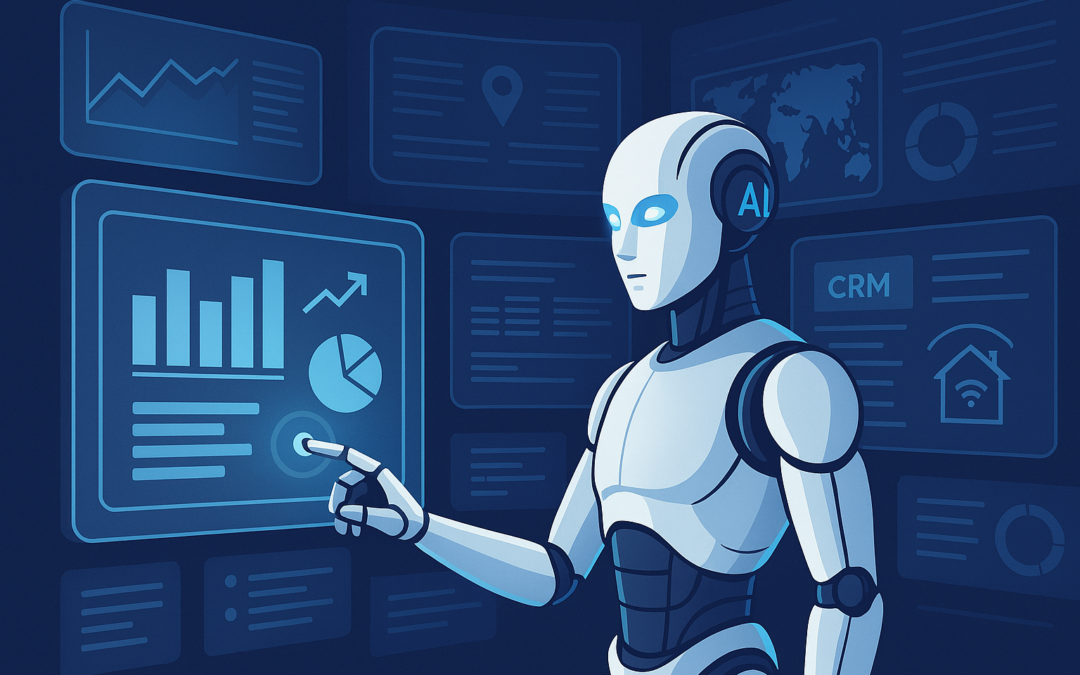If you have a busy schedule and need help managing tasks you could use traditional automation, like having a very efficient assistant who follows a detailed manual perfectly. Now, there’s a new option called agentic AI which is like hiring someone who can think, adapt, and make smart decisions on their own. Understanding the difference between these two approaches could transform how your business operates in 2025.
The Simple Difference
Traditional automation is like using a coffee machine. You press the buttons in the right order and you get the same coffee every time. It’s reliable, predictable, and perfect for repetitive tasks. But if something unexpected happens, like running out of milk or coffee the machine just stops working.
Agentic AI is like a skilled barista. It knows you want coffee and can adapt when the milk or coffee runs out, by offering offering oat milk instead, or suggesting a different drink. It is focussed on your goal (getting a great drink) rather than just following steps.
The key difference is that agentic AI can assess situations, adjust actions, and act proactively to align with larger business goals, while traditional automation simply follows pre-written instructions.
Why 2025 is Special
Several things are happening to make 2025 the year when smart AI assistants become mainstream in business. First, AI has become much better at understanding context and making decisions and second, businesses are realizing they need more flexible solutions to stay competitive.
Whilst 2025 will see a growth in companies testing these smart AI assistants, high implementation costs and unclear benefits could cause adoption to stall.
This means businesses need to be smart about when and how they use these new tools.
When to Use Each Approach
Stick with Traditional Automation For:
• Paying bills automatically each month
• Processing the same type of customer orders repeatedly
• Moving data from one system to another
• Tasks that must be done exactly the same way every time
Try Agentic AI For:
• Customer service conversations that vary widely
• Planning and scheduling that changes based on circumstances
• Tasks that require understanding context and making judgment calls
• Situations where you want the system to learn and improve over time
Think of it this way: traditional automation is perfect for your payroll system, but agentic AI is better for managing customer complaints that require empathy and creative problem-solving.
Real-World Example
Let’s say a customer emails your company with a complaint about a delayed order.
Traditional Automation would:
1. Read the email
2. Check if it contains keywords like “delay” or “complaint”
3. Send a standard response template
4. Create a support ticket
Agentic AI would:
1. Read and understand the customer’s specific situation
2. Check their order history and account status
3. Understand their tone and level of frustration
4. Craft a personalized response addressing their specific concerns
5. Take appropriate action like offering compensation or expediting their order
6. Follow up to ensure satisfaction
The AI assistant doesn’t just process the complaint, it tries to solve the customer’s problem.
The Best of Both Worlds
Smart businesses aren’t choosing one or the other. Instead, they’re using both approaches where each works best. AI orchestrators are becoming the backbone of business systems, think of them as supervisors who coordinate different types of automation.
For example, traditional automation might handle routine inventory updates, while agentic AI manages complex customer negotiations. When they work together, you get the reliability of traditional systems with the intelligence of AI.
What Could Go Wrong?
Like any new technology, agentic AI comes with challenges:
Cost: Smart AI systems require more computing power and are more expensive to run than simple automation.
Unpredictability: While traditional automation does exactly what you program it to do, AI might make decisions you didn’t expect, sometimes good, sometimes problematic.
Complexity: Setting up AI systems requires more planning and ongoing management than traditional automation.
Trust: It can be harder to understand why an AI made a particular decision, which can be concerning for important business processes.
Making the Right Choice
Here’s a simple way to decide what’s right for your business:
Start with traditional automation if:
• Your processes are straightforward and rarely change
• You need to be absolutely certain about outcomes
• Budget is your main concern
• You’re just getting started with automation
Consider agentic AI if:
• Your business deals with many unique situations
• Customer experience is critical to your success
• You want systems that can improve over time
• You’re comfortable with some unpredictability in exchange for intelligence
Looking Ahead
Agentic AI can interpret high-level goals and break them into smaller tasks, which means you can give it broad instructions like “improve customer satisfaction” rather than detailed step-by-step procedures.
This is revolutionary because it means business owners can focus on what they want to achieve rather than how to achieve it. The AI figures out the “how” part.
The Bottom Line
In 2025, you’ll likely use both traditional automation and agentic AI in your business, just in different places. Traditional automation will continue handling routine, predictable tasks efficiently and cheaply. Agentic AI will take on the complex, creative, and customer-facing challenges that require human-like thinking.
The businesses that succeed will be those that understand when to use each approach. They’ll automate the routine stuff to save time and money, while using AI to create better customer experiences and solve complex problems.
The choice isn’t really between old and new technology, it’s about building a business that combines the reliability of automation with the intelligence of AI. Get this balance right in 2025, and you’ll have a significant advantage over competitors who are still doing everything manually or using only simple automation.
For more information on how AI and Agentic AI can help you run your business
https://plumcom.co.uk/contact-us/

